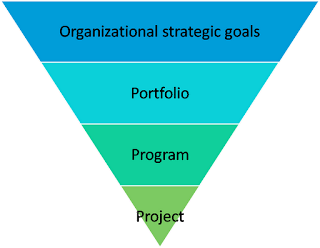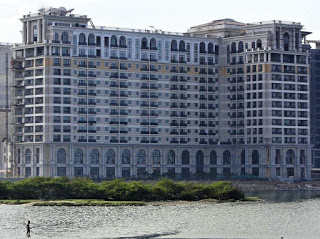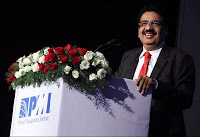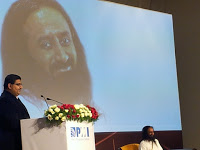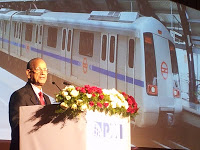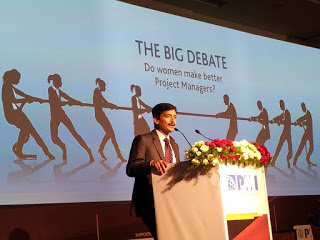We have completed 50 articles on project management in Just Get PMP blog, in particular topics related to PMP (Project Management Professional) certification exam preparation. I would be glad if some of those articles help you in a little way to your PMP exam preparation. I started this blog sometime in 2010 with an intention to share my experience with PMP certification exam; and also wanted to use this blog as a platform to share information to those candidates who attend my PMP training programmes.
Monday, October 29, 2012
50 Project Management Articles
We have completed 50 articles on project management in Just Get PMP blog, in particular topics related to PMP (Project Management Professional) certification exam preparation. I would be glad if some of those articles help you in a little way to your PMP exam preparation. I started this blog sometime in 2010 with an intention to share my experience with PMP certification exam; and also wanted to use this blog as a platform to share information to those candidates who attend my PMP training programmes.
Portfolio, Program and Projects
Project
Projects are temporary endeavors undertaken to create a unique product, service or result. Projects are means of organizing activities that cannot be generally addressed within the organization’s normal operations. Organizations often employ projects as means of achieving their strategic goals.
Examples of strategic goals:
- Increasing profit margins on large projects
- Decreasing costs on supplies
- Improving skill levels of key workers
- To become the market leader in luxury car segment
- To enter the rail sector
Program
A program is a group of related projects managed in a coordinated way to obtain benefits and control not available from managing them individually. The projects are grouped as a program with an aim to achieve economies of scale and reduce risks. For example, you may combine all your private apartment projects in Singapore under one program. Or, you may choose to manage all your highway projects in Tamil Nadu as one program. The idea is to have similar projects so that you can share resources and manage them better.
Portfolio
A portfolio is a collection of projects or programs grouped together to facilitate effective management to meet strategic business objectives. The programs and projects within a portfolio may not be related to each other.
Project Management National Conference: My View
India's 4th annual
Project Management National Conference
was held in Chennai from 28th September to 30th September 2012. I was fortunate to attend the mega event; the first time I attend such a huge conference on project management. While PMI Chennai was painting rosy pictures before the commencement of the conference, I was a little bit negative; as such, I was taken by surprise to see a huge gathering of delegates from all over the world. I understand that the delegates count was more than 1000.
The venue was the Leela Palace Chennai, the new sea front hotel in Raja Annamalai Puram. Being the first mega event hosted by Leela Palace, the staff went the extra mile to ensure the delegates were happy and satisfied.
Mr. Vineet Nayar, Vice Chairman & CEO, HCL Technologies gave a speech which was interesting and engaging. He spoke about the importance of employees to the organization. One interesting question to Vineet Nayar was "I have an incompetent superior; so, I am unable to grow. I am very stressed". Vineet Nayar was quick to respond "You are so lucky. You have the best opportunity to show that you are competent. If your boss is competent, it takes time for you to prove yourselves and establish. Now, you have a better environment, go and use it to your advantage".
His Holiness Sri Sri Ravi Shankar, Founder, Art of Living Foundation & International humanitarian leader was another interesting speaker at the conference. That was the first time I attended a programme by Sri Sri Ravi Shankar. He engaged the delegates with a quick "desktop yoga/ meditation" session which lasted close to about 20 minutes. He insisted the project managers not to lose their smile in spite of the stressful work environment they have. I liked his advice "Show your anger, but don't get angry". How good if I can follow that? One of the participants requested for advice on balancing his family and work. He gave an analogy of a bicycle, where you always have a nice balance to ride. Sometimes, you bend on one side but not fully; sometimes you bend on the other side to negotiate a curve. But the lesson is to balance both, work and family, knowing when to bend and how much to bend is the secret to have the bicycle running smoothly.
The speaker whom I had been waiting for was Dr. E Sreedharan, Principal Advisor to DMRC (Delhi Metro Rail Corporation). In my opinion, he was a pioneer to modern project management in India. He was the roaring success behind the metro rail revolution in India. He showed to the people of India that Government projects can also be completed within the given schedule, to the international quality standards and without any complaint of scam/ bribe. During his speech, he emphasized the importance of forming a good team for your project, encouraging them to take responsibility/ decision making roles and support them when their decisions go wrong. Mr. Sreedharan was of the opinion that delay in decision making was the major reason for delays in infrastructure projects. He ensured the Contractors are properly taken care of and their problems are treated as the project's problems.
I personally felt the panel discussions were boring, particularly the first panel discussion on "Has the time arrived for a Chief Projects Officer?". I felt so sleepy that I had to leave the conference hall for a short walk outside. The second panel discussion on "Do women make better project managers?" was better and was made interesting by the host.
Overall, it was a good experience and helped me learn the experience of project management stalwarts. It was also an opportunity to network with like-minded project management practitioners.
The venue was the Leela Palace Chennai, the new sea front hotel in Raja Annamalai Puram. Being the first mega event hosted by Leela Palace, the staff went the extra mile to ensure the delegates were happy and satisfied.
Mr. Vineet Nayar, Vice Chairman & CEO, HCL Technologies gave a speech which was interesting and engaging. He spoke about the importance of employees to the organization. One interesting question to Vineet Nayar was "I have an incompetent superior; so, I am unable to grow. I am very stressed". Vineet Nayar was quick to respond "You are so lucky. You have the best opportunity to show that you are competent. If your boss is competent, it takes time for you to prove yourselves and establish. Now, you have a better environment, go and use it to your advantage".
His Holiness Sri Sri Ravi Shankar, Founder, Art of Living Foundation & International humanitarian leader was another interesting speaker at the conference. That was the first time I attended a programme by Sri Sri Ravi Shankar. He engaged the delegates with a quick "desktop yoga/ meditation" session which lasted close to about 20 minutes. He insisted the project managers not to lose their smile in spite of the stressful work environment they have. I liked his advice "Show your anger, but don't get angry". How good if I can follow that? One of the participants requested for advice on balancing his family and work. He gave an analogy of a bicycle, where you always have a nice balance to ride. Sometimes, you bend on one side but not fully; sometimes you bend on the other side to negotiate a curve. But the lesson is to balance both, work and family, knowing when to bend and how much to bend is the secret to have the bicycle running smoothly.
The speaker whom I had been waiting for was Dr. E Sreedharan, Principal Advisor to DMRC (Delhi Metro Rail Corporation). In my opinion, he was a pioneer to modern project management in India. He was the roaring success behind the metro rail revolution in India. He showed to the people of India that Government projects can also be completed within the given schedule, to the international quality standards and without any complaint of scam/ bribe. During his speech, he emphasized the importance of forming a good team for your project, encouraging them to take responsibility/ decision making roles and support them when their decisions go wrong. Mr. Sreedharan was of the opinion that delay in decision making was the major reason for delays in infrastructure projects. He ensured the Contractors are properly taken care of and their problems are treated as the project's problems.
I personally felt the panel discussions were boring, particularly the first panel discussion on "Has the time arrived for a Chief Projects Officer?". I felt so sleepy that I had to leave the conference hall for a short walk outside. The second panel discussion on "Do women make better project managers?" was better and was made interesting by the host.
Overall, it was a good experience and helped me learn the experience of project management stalwarts. It was also an opportunity to network with like-minded project management practitioners.
Friday, October 26, 2012
What is Progressive Elaboration?
At the beginning stages of any project, you have very little information and detail to work with. It is the characteristic of any project and the project management team has to live with it. But, how we can proceed? What is the approach to planning? This is where the concept of Progressive Elaboration comes in handy.
Progressive elaboration allows a project management team to manage the project to a greater level of detail as it evolves. It involves continuously improving and detailing a plan as more detailed and specific information and more accurate estimates become available. It helps in achieving more accurate and complete plans that result from successive iterations of the planning process.
Thursday, October 25, 2012
Competing Project Constraints
We have seen earlier that managing a project includes balancing the competing project constraints. As a project manager, we should be clear that projects need to be performed and delivered under certain constraints.
But, what is a constraint? A constraint is anything that limits the boundary of your problem. For example, if I tell you to construct a house in 2400 sq. ft, then I am giving you a constraint. The constraint here is you have to build the house within the given land area of 2400 sq. ft. I would also tell you that I have only $100,000 for the construction of the house. Again, I am limiting your project to a boundary, beyond which you are not allowed to go. I could also tell you that I need the house to be handed over to me within one year. Again, this is a constraint. So, overall, I have given three constraints above:
- Land area: Not to exceed 2400 sq.ft
- Cost: Not to exceed $100,000
- Time: To complete within a year
Triple Constraints: In project management, three constraints are considered very critical. They are
- Schedule/ time,
- Budget/ cost and
- Scope.
When I say that certain constraint is important, it does not mean that we are neglecting the other constraints. We still need to try to work within those constraints. But, as a project manager, you know where the priority lies. That is more important.
Competing Project Constraints: PMBOK extends the triple constraints and calls the following as competing project cosntraints:
- Schedule/ time
- Budget/ cost
- Scope
- Quality
- Resources and
- Risk
Impact of change in constraints: If any one constraint changes, at least one other constraint is likely to be affected. For example, to shorten the schedule, you need additional resources which may lead to an increase in the cost. So, it is important for the project management team to evaluate the effect of change in one constraint on other constraints.
Importance of Constraints for Project Planning: While it may seem that constraints are difficult to handle, it is very much necessary to define a finite problem. If there are no constraints, you would be working with an indefinite problem in space. So, its always important for a project manager to understand and list down the constraints in a project. This would help him/ her to effectively plan the project. During planning, the project management team should be clear that they are able to work within all the given constraints. If it is found that the constraints cannot be met, then it has to be brought to the notice of the senior management (or) project sponsor (or) the customer.
Monday, October 22, 2012
Body Language for Presentations
As we all know, good communication skill is one of the most important characteristics of a successful project manager. Project manager and the project management team is required to communicate day in day out to various stakeholders involved in the project. Good communication is a prerequisite for the success of any project. But, when we refer to communication, its not only verbal or written; it also includes your body language. When you are giving a presentation, your body language conveys much more than the words from your mouth.
With that introduction on the importance of communication for a project manager, I would like you to take a look at the following video. I found this video on "Body Language for Presentations" in Youtube. Its interesting and I thought this video would be useful for you. So, see this video and prepare yourself before you go for your next presentation on your project; may be to your customer, senior management or to other stakeholders.
With that introduction on the importance of communication for a project manager, I would like you to take a look at the following video. I found this video on "Body Language for Presentations" in Youtube. Its interesting and I thought this video would be useful for you. So, see this video and prepare yourself before you go for your next presentation on your project; may be to your customer, senior management or to other stakeholders.
Sunday, October 7, 2012
PMP Training in Chennai
Singapore Training Academy is conducting PMP Exam Preparation Course in Chennai. The details are as follows:
Course Schedule: 23, 24, 27 & 28 Oct 2012
Location: Chennai
Special Offer: Rs. 7500 + taxes
Discounts available for group bookings
The price is attractive and probably the lowest available currently in Chennai. The academy is also providing further discounts for group bookings (two or more PMP aspirants). Please avail the offer if you are interested in pursuing the prestigious PMP certification exam, as this introductory special offer could be withdrawn after the initial bookings.
If you are intersted in the PMP Exam Preparation Course conducted by Singapore Training Academy in Chennai, the contact details are provided below:
Course Schedule: 23, 24, 27 & 28 Oct 2012
Location: Chennai
Special Offer: Rs. 7500 + taxes
Discounts available for group bookings
The price is attractive and probably the lowest available currently in Chennai. The academy is also providing further discounts for group bookings (two or more PMP aspirants). Please avail the offer if you are interested in pursuing the prestigious PMP certification exam, as this introductory special offer could be withdrawn after the initial bookings.
If you are intersted in the PMP Exam Preparation Course conducted by Singapore Training Academy in Chennai, the contact details are provided below:
E-mail: ContactUs@StrapAsia.com
India Office:
Real Enclave, 2nd Floor
22, Josier Street
Nungambakkam
Chennai 600034
Phone: (91) 95001-80422
Singapore Office:
320 Serangoon Road
#04-04 Serangoon Plaza
Singapore 218108
Phone: (65) 9671-2941

